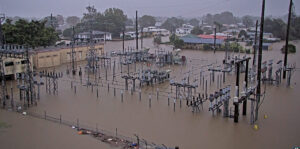Economics and politics don’t really have much in common. While it is the job of politicians to decide what is fair and what is not, students are taught in economics 101 that economics is not concerned with fairness and distribution. The main job of economists is to help grow the pie, and the main job of politicians is to share it out. Last week’s review of the Renewable Energy Target (RET) chaired by Dick Warburton provides a textbook example of just how incompatible economic and political logic can be.
Dick Warburton is proud to call himself a climate sceptic. And like many people with no expertise in the energy market, his starting point was the assumption that the RET was a source of upward pressure on electricity prices. Unfortunately for Mr Warburton however, the modelling conducted for his inquiry soon showed that the opposite was the case. Indeed, Mr Warburton spent hundreds of thousands of taxpayers’ dollars on modelling by ACIL Tasman that confirmed the conclusion of four other modelling exercises.
Related documents
Between the Lines Newsletter
The biggest stories and the best analysis from the team at the Australia Institute, delivered to your inbox every fortnight.
You might also like
Dutton’s nuclear push will cost renewable jobs
Dutton’s nuclear push will cost renewable jobs As Australia’s federal election campaign has finally begun, opposition leader Peter Dutton’s proposal to spend hundreds of billions in public money to build seven nuclear power plants across the country has been carefully scrutinized. The technological unfeasibility, staggering cost, and scant detail of the Coalition’s nuclear proposal have
Climate crisis escalates cost-of-living pressures
A new report has found direct connections between the climate crisis and rising cost-of-living pressures. Failure to lower emissions now will only aggravate the crisis, with each moment of inaction compounding the pressure on households.
Facts are among the biggest casualties in the war against renewable energy
Around this time 12 years ago, Barnaby Joyce stood up and declared the average family lamb roast was about to cost $100.



